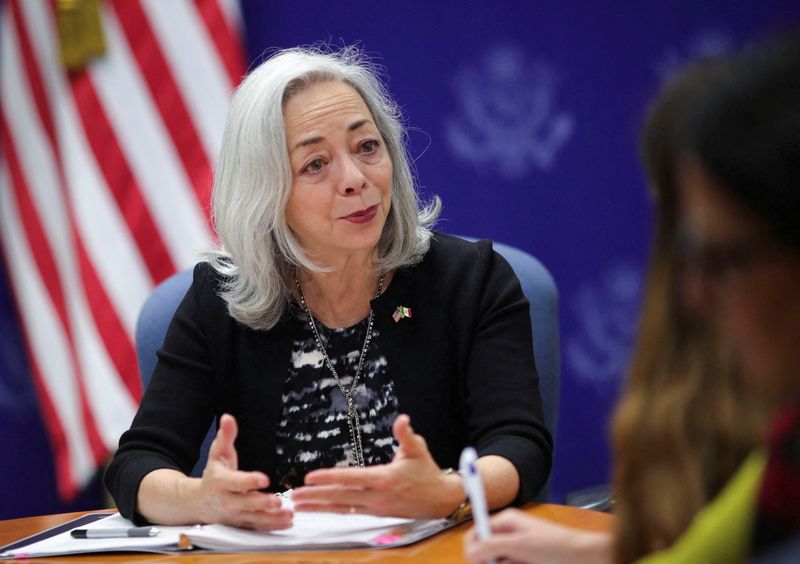US labor official calls on companies to exit China’s Xinjiang
2024.04.30 14:03

WASHINGTON (Reuters) – International companies cannot responsibly operate in Xinjiang and should leave the western Chinese region due to forced labor concerns, a U.S. Labor Department official said on Tuesday.
The U.S. government says Chinese officials continue to commit genocide and crimes against humanity against Uyghurs and other Muslim minorities in Xinjiang, and rights groups have pressured Western companies there to audit their operations over forced labor concerns.
China’s government vehemently denies allegations of abuses.
Thea Lee, deputy undersecretary for International Affairs at the Labor Department, told a U.S. congressional hearing that Beijing had made it “essentially illegal” to conduct independent human rights audits in Xinjiang.
“If it is impossible to do that, then the only responsible thing to do is not to operate in that atmosphere,” Lee told the Congressional-Executive Commission on China, without naming individual companies.
China’s embassy in Washington did not respond immediately to an emailed request for comment.
Chinese officials have acknowledged “vocational training centers,” in Xinjiang, but say were intended to curb terrorism, separatism and religious radicalism. They have also said the “Sinicisation” of Islam in the country is inevitable.
On Feb. 9, German chemicals giant BASF said it would sell its stakes in two joint ventures in Xinjiang, after rights groups documented abuses including forced labor in detention camps.
Volkswagen (ETR:) too has said it was in talks with its joint venture partner in China over the future direction of its business activities in the region.
Beijing in 2017 launched a harsh security crackdown in Xinjiang. Some experts say that alleged mass internment of Uyghurs peaked in 2018, but that abuses have continued with labor transfers becoming more prominent.
3rd party Ad. Not an offer or recommendation by Investing.com. See disclosure here or
remove ads
.
Still, China’s government has sought to make Xinjiang a heavy industry hub, and it is important for the processing of aluminum and for producing auto parts, solar components and other goods that make their way into global supply chains.
The U.S. Congress has passed laws to pressure China over its Xinjiang policies, including the Uyghur Forced Labor Prevention Act that bars imports from the region. The Department of Labor does not set rules on how U.S. companies can operate in China.
Lee said China’s transfer of Uyghur laborers to other parts of the country had been growing, but that it was difficult to verify the extent of the program.
“I have not seen an effective way to address the challenges of monitoring the labor transfer program of workers outside of Xinjiang,” Lee said.
She said data on Chinese websites is periodically removed, and that there is no free access to workplaces to assess workers’ origins.








